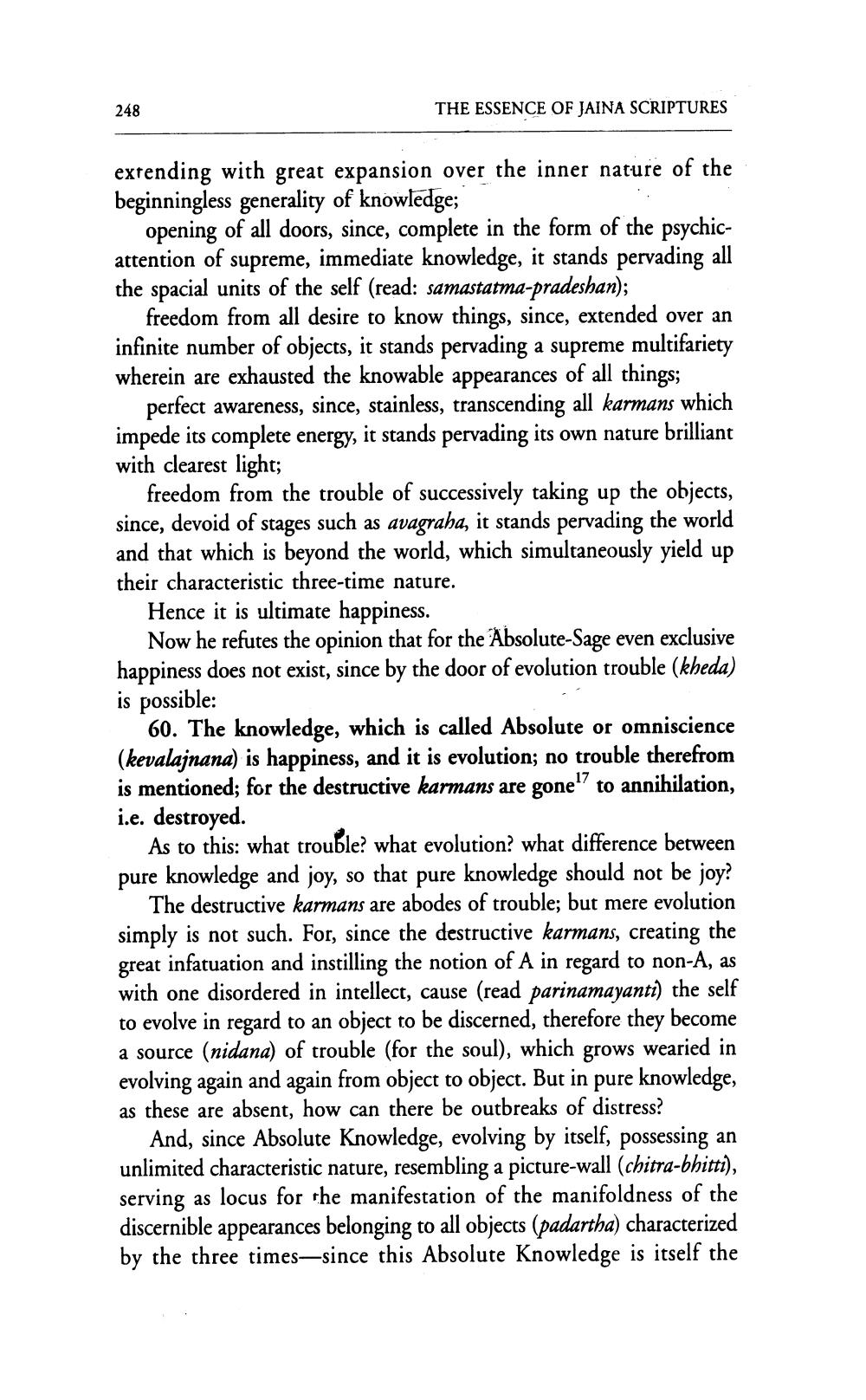________________
248
THE ESSENCE OF JAINA SCRIPTURES
extending with great expansion over the inner nature of the beginningless generality of knowledge;
opening of all doors, since, complete in the form of the psychicattention of supreme, immediate knowledge, it stands pervading all the spacial units of the self (read: samastatma-pradeshan);
freedom from all desire to know things, since, extended over an infinite number of objects, it stands pervading a supreme multifariety wherein are exhausted the knowable appearances of all things;
perfect awareness, since, stainless, transcending all karmans which impede its complete energy, it stands pervading its own nature brilliant with clearest light;
freedom from the trouble of successively taking up the objects, since, devoid of stages such as avagraha, it stands pervading the world and that which is beyond the world, which simultaneously yield up their characteristic three-time nature.
Hence it is ultimate happiness.
Now he refutes the opinion that for the Absolute-Sage even exclusive happiness does not exist, since by the door of evolution trouble (kheda) is possible:
60. The knowledge, which is called Absolute or omniscience (kevalajnana) is happiness, and it is evolution; no trouble therefrom is mentioned; for the destructive karmans are gone to annihilation, i.e. destroyed.
As to this: what trouble? what evolution? what difference between pure knowledge and joy, so that pure knowledge should not be joy?
The destructive karmans are abodes of trouble; but mere evolution simply is not such. For, since the destructive karmans, creating the great infatuation and instilling the notion of A in regard to non-A, as with one disordered in intellect, cause (read parinamayanti) the self to evolve in regard to an object to be discerned, therefore they become a source (nidana) of trouble (for the soul), which grows wearied in evolving again and again from object to object. But in pure knowledge, as these are absent, how can there be outbreaks of distress?
And, since Absolute Knowledge, evolving by itself, possessing an unlimited characteristic nature, resembling a picture-wall (chitra-bhitti), serving as locus for the manifestation of the manifoldness of the discernible appearances belonging to all objects (padartha) characterized by the three times—since this Absolute Knowledge is itself the




